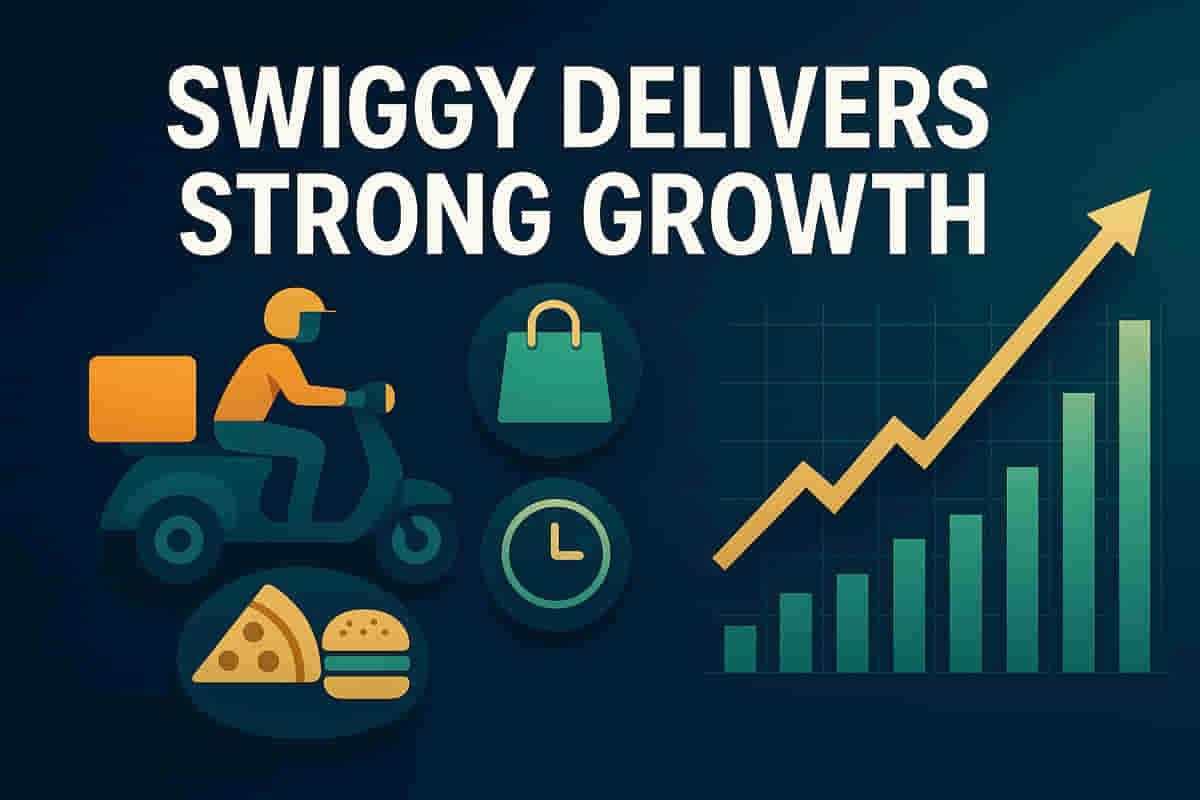Swiggy Reports Strong Growth in Food Delivery and Quick Commerce, Narrows Losses
Tech
|
31st October 2025, 4:36 AM

▶
Stocks Mentioned :
Short Description :
Detailed Coverage :
Swiggy has reported significant financial growth, with consolidated revenue increasing by 53% year-on-year to Rs 5,911 crore. This strong performance was driven by its Food Delivery (FD) and Quick Commerce (QC) segments, with Gross Order Value (GOV) showing substantial gains. Importantly, the company has successfully narrowed its Earnings Before Interest, Taxes, Depreciation, and Amortisation (EBITDA) losses sequentially, demonstrating progress in operational efficiency and cost management. Swiggy's strategic shift now focuses on improving store productivity and optimizing fleet costs to achieve profitability. The company maintains a healthy cash balance of Rs 4,605 crore, with pro forma liquidity reaching Rs 7,000 crore after selling its stake in Rapido. Further capital raise plans are also in motion.
Impact This news holds considerable importance for the Indian stock market, especially for investors interested in the technology, e-commerce, and logistics sectors. Although Swiggy is not a listed entity, its financial performance and strategic direction offer critical insights into the competitive landscape and growth potential of the online food delivery and quick commerce market in India. It serves as a benchmark for listed players like Zomato and influences overall investor sentiment towards these high-growth digital businesses. The company's trajectory towards profitability and solid liquidity can boost confidence in India's digital economy. Rating: 8/10
Difficult Terms Explained: GOV (Gross Order Value): The total monetary value of all orders facilitated by the platform before any deductions. MTU (Monthly Transacting Users): The count of unique customers who made at least one purchase within a month. EBITDA (Earnings Before Interest, Taxes, Depreciation, and Amortisation): A profitability metric that excludes non-operating expenses and non-cash charges, indicating operational earnings. AOV (Average Order Value): The average amount spent by a customer per order. Darkstores: Small distribution centers located in urban areas used for rapid fulfillment of online orders, particularly for groceries and convenience items. QIP (Qualified Institutional Placement): A fundraising mechanism allowing companies to issue securities to institutional investors.